by Maggie Parfitt, Visitor Services Coordinator
Sometimes when we have a quiet afternoon at the MHS I’ll sit and read through our historical newspaper collection. A very historic hobby to keep, and one that turns up a lot of interesting things—like what some of our founding fathers were doing during their non-founding hours. I hope you find this selection of clippings as amusing and interesting as I do!
Paul Revere, silversmith and midnight rider, was also Paul Revere, dentist. Although it seems primarily on the side, as he directed potential patients to meet with him in his Silversmith’s Shop.
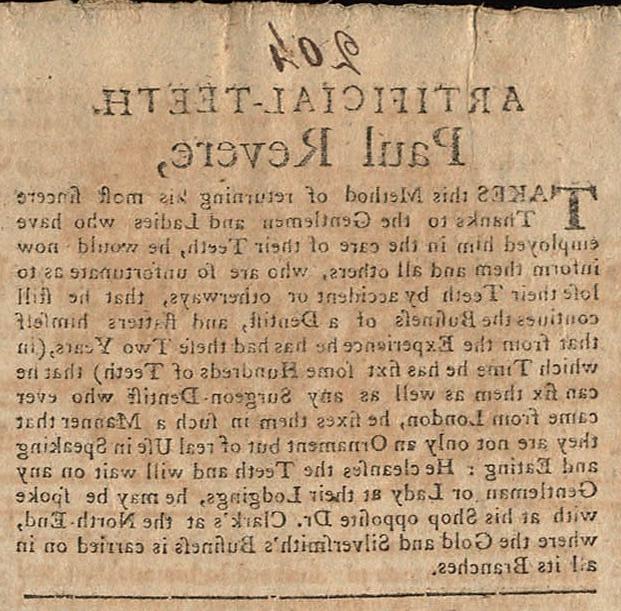
And Paul Revere, engraver (though this business of his is more widely remembered.)
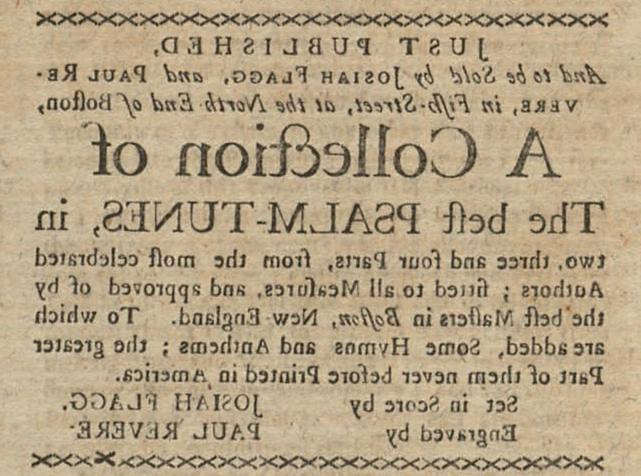
You had more options for tooth care in Boston than just Paul Revere: You could visit Daniel Scott at his medicine store at the (very memorable) Sign of the Leopard, where among other services “all Persons who have the Scurvy in their Teeth, which threatens their removal though sound, may have them cleaned without hurting the Enamel, or in the least degree impairing them, and may be supplied with his DENTIUM CONSERVATOR, which is an excellent Powder, the best adapted for preserving the Teeth and Gums, and preventing them from Aching”
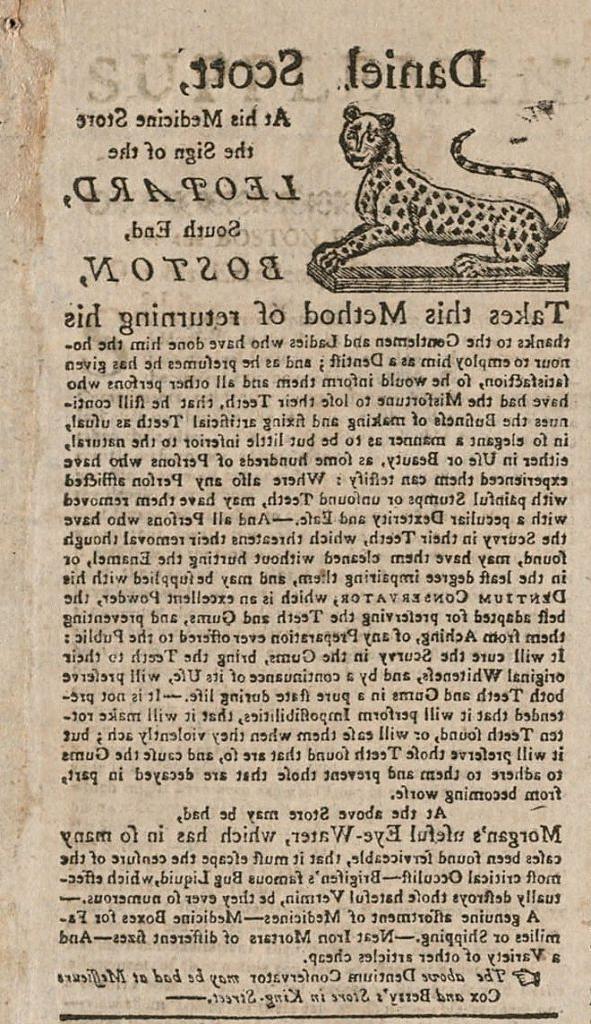
John Joy joined his colleagues in selling “a fresh Supply of Druggs & Medicines,” promising “Country Practitioners, Apothecarys, etc. may be suppy’d to great Advantage.” I’m interested in the implied distinction of practice between “country” and “city.”
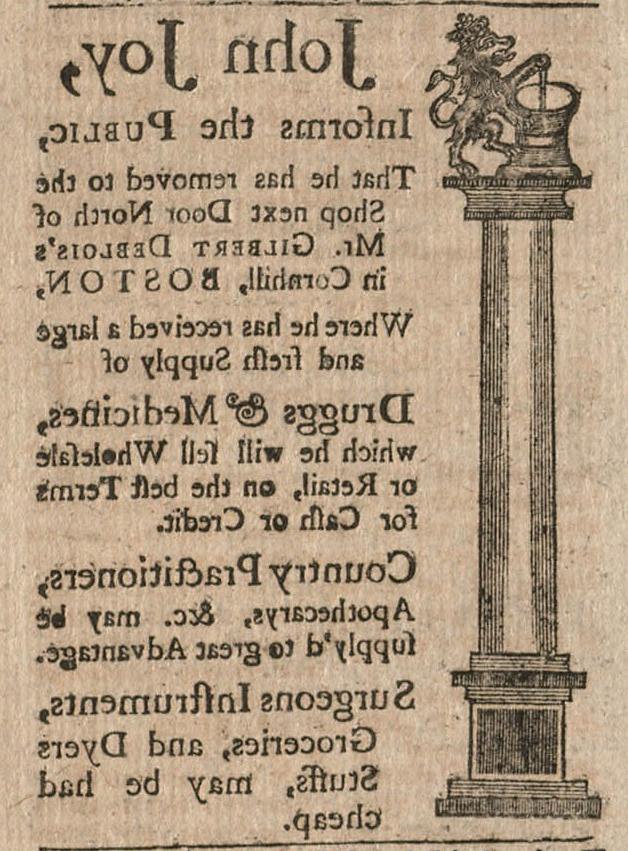
John Hancock, heir to one of the richest merchant families in Boston, inherited his Uncle Thomas Hancock’s business after his death in 1764. In 1765 it seems he was still balancing accounts and “desires those Persons who are still indebted to the Estate of the late Hon. Thomas Hancock, Eqs: deceased, to be speedy in paying their respective Ballances, to prevent Trouble.”
![A Newspaper Advertisement which reads “To be sold by John Hancock, at his store No. 4, at the East End of Faneuil Hall, A general Assortment of English and India Goods, also choice Newcastle Coals and Irish Butter, cheap for Cash. Said Hancock desires those Persons who are still indebted to the Estate of the late Hon. Thomas Hancock, Esq: deceased, to be speedy in paying their respective balances, to prevent trouble. N.B. In the Lydia, Capt. Scott, from London came the following packages 1 W No. 1, A Trunk, No. 2, a small Parcel. The Owner, by applying to John Hancock and saying [illegible], may have his goods."](http://cvippr.kico-info.com/beehiveblog/wp-content/uploads/2024/07/John-Hancock-early.jpg)
Even one of Boston’s most prominent merchants was not immune to the backlash against imported British goods. But in 1771 he found it palatable to once again advertise imported goods, while assuring the public that he kept “the most strict Compliance with the Non-Importation Agreement during its Continuance.”
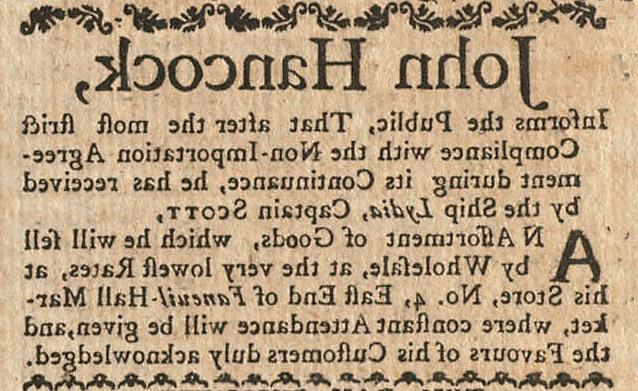
John Hancock continued to balance his identity of merchant with that of revolutionary. Advertisements for his Oration given on the anniversary of what we now know as the Boston Massacre can be found in the same paper where he advertised his goods for sale.
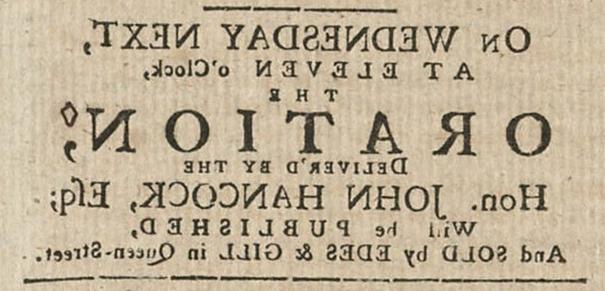
John Hancock was not the only one to face social pressure during the non-importation agreement. Women (or “Ladies”) were often appealed to directly, especially regarding the non-consumption of British tea. I still get a kick out of the line “However coolly some of you may now esteem your Husbands” in the 21st century.

I also greatly enjoy the advertisements for less-remembered fields of business. Ladies (and Gentlemen) may have sent their children to join Peter Curtis at his new Dancing School. And Gentlemen who wished to learn “The Noble Science of DEFENCE commonly called the BACK-SWORD” may join Donald McAlpine in the Day-Time or Evening.
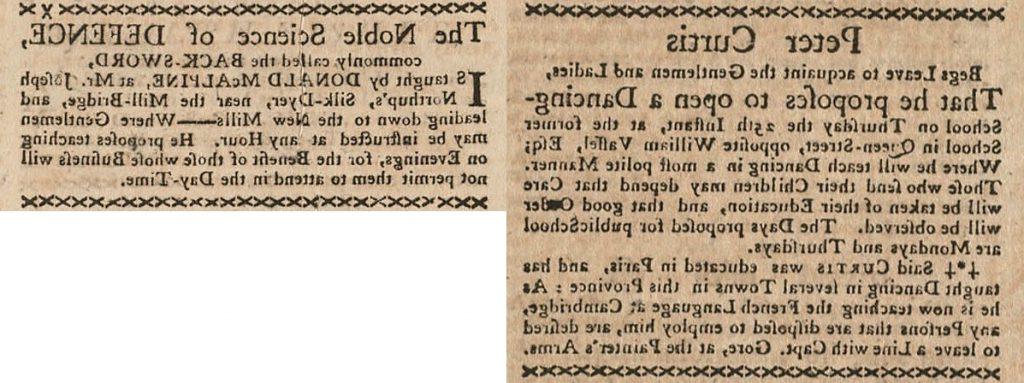
Thanks for joining me on this quick little jaunt through our Harbottle Dorr newspaper collection—there’s way more where that came from! You can browse the collection yourself here.

